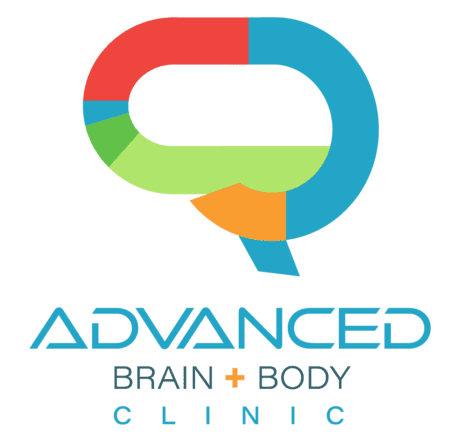Minneapolis columnist Jon Tevlin recently covered his own journey out of depression in the Star Tribune article titled Depressed after his wife’s death, this Minneapolis man turned to ketamine therapy for help. Ketamine is the only legal psychedelic medication that is proven to be effective in treating severe depression, bipolar depression, PTSD, anxiety and suicidal thoughts.
Tevlin’s story is a powerful one. It’s also a common story.
Ketamine has been widely administered for years with unprecedented success at specialty clinics throughout the country. It can help transform and save lives. Stories like Tevlin’s are hugely important, giving hope to people who are struggling with severe depression and potentially limited treatment options, many of which have undesirable side effects.
I’m proud to have been part of Minnesota’s history at the forefront of ketamine treatment:
- A landmark ketamine study with researchers at the Minneapolis VA Healthcare System proving the feasibility of outpatient treatment with ketamine, which set the benchmark for ketamine infusions nationwide.
- Helping open one of the first outpatient clinics in the nation to offer ketamine at North Memorial Hospital in 2014.
In this post, I want to revisit elements of the story to underscore some key points:
A psychedelic high is not the goal
Tevlin’s article is a poignant descriptive of a ketamine therapy experience and the relief some people feel, though it’s not always that immediate. It’s important to know that the out-of-body or dissociative feelings that people sometimes experience are essentially a side-effect, which can be pleasant for some and unpleasant for others.
However, the benefit of ketamine to decrease depression continues after the side effects resolve. Over time, the need for ketamine often diminishes and treatments may even be discontinued. For an example of this, read Tom’s story in my Psychology Today blog post titled: Three Lives Debilitated by Depression, Transformed by Ketamine.
Ketamine therapy and psychotherapy are proven depression treatments
Ketamine and psychotherapy have each been proven to be effective depression treatments on their own. And, when both treatments are used as part of a holistic psychiatric care plan, they may work synergistically.
According to Yale Medicine, “ketamine may be most effective when combined with cognitive behavioral therapy (CBT), a type of psychotherapy that helps patients learn more productive attitudes and behaviors.”
Ketamine leads to rapid neuron growth. When followed with psychotherapy, patients can better establish healthy thinking patterns and coping strategies.
Psychedelic assisted therapy can be controversial
Psychedelic assisted therapy is when patients are given ketamine during a psychotherapy session. This is based on the idea that the patient’s altered state is an opportunity for deeper exploration. While this may prove to be beneficial, it also places patients in a highly vulnerable state.
There is currently no generally accepted medical standard for psychedelic assisted therapy, though several models do exist. There is also no existing framework for providers to bill insurers for these services. As such, many clinics providing psychedelic-assisted therapy or ketamine-assisted psychotherapy are using their own independent standards and bill patients directly.
A 2022 study citing psychedelic assisted therapy as an emerging field used a model that separates the dosing session from psychotherapy sessions
Source: National Institute of Health Website
Research is changing minds … gradually
There is some more recent research available than the 2019 National Institutes of Health (NIH) report cited in the Star Tribune article. With plenty of evidence that ketamine is effective, today’s science is delving deeper into exactly how it works on a molecular level and how it can be targeted to specific areas of the brain. Here are a couple examples:
- Penn Medicine Study Gives Peek of How Ketamine Acts as ‘Switch’ in the Brain – Penn researchers in 2022 found that ketamine “dramatically reorganizes activity in the brain, as if a switch had been flipped on its active circuits.”
- Ketamine found effective in treating severe depression, from the Harvard Gazette based on a 2023 study that found ketamine as effective as electroconvulsive therapy (ECT), the previous ‘gold standard’ for severe depression, without all the side effects.
Insurance coverage is NOT keeping pace
Very few insurance companies currently cover ketamine treatments for depression, the number of companies who cover it has actually declined in recent years. For example, HealthPartners stopped covering ketamine for depression on July 1st, 2024.
The only FDA-approved derivative of ketamine for the treatment of depression is esketamine, a nasal spray under the brand name Spravato. Esketamine is approved by most insurance companies, but it’s also the least potent and most expensive option, with some analyses showing it to be three times less effective than intravenous (IV) ketamine. (Comparative efficacy of racemic ketamine and esketamine for depression: a systematic review and meta-analysis)
Ketamine doesn’t always work
Nothing in mental health is a panacea, so it is important to keep in mind that there are many other options for the treatment of depression and anxiety, including transcranial magnetic stimulation (TMS), vagus nerve stimulation (VNS), and new medications that work differently from older treatments.
Conclusion
Patients need more stories like Tevlin’s about the benefits of ketamine for depression. As the first psychedelic medication to move into mainstream clinical psychiatric use, ketamine is steadily rising to the intense scrutiny that is ultimately good for patients and practitioners alike.
1 Barber GS, Aaronson ST. The Emerging Field of Psychedelic Psychotherapy. Curr Psychiatry Rep. 2022 Oct;24(10):583-590. doi: 10.1007/s11920-022-01363-y. Epub 2022 Sep 21. PMID: 36129571; PMCID: PMC9553847.

Brian Johns, MD is a Minneapolis psychiatrist and a mental health leader who helped shape ketamine treatment for depression in Minnesota and the nation. He co-authored a Minnesota VA Hospital medical trial to open the door for ketamine treatment to change–from a revolving-door hospital intervention, to an ongoing regimen at an outpatient clinic–while setting the benchmark for ketamine infusions nationwide. He then developed the region’s first ketamine infusion clinic. Over the past several years, he has administered or overseen thousands of ketamine treatments. Dr. Johns is a graduate of the University of Minnesota Medical School and completed his residency in Psychiatry. He is certified by the American Board of Psychiatry and Neurology.

